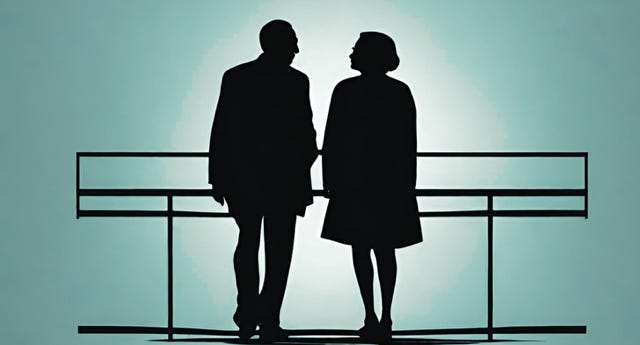Should we give up on older men?
I’ve heard this question a lot lately, but I think it's the wrong one
I was recently in conversation with a group of amazing, strong, intelligent women, when the conversation turned to the problems many of us are seeing around older males. The general consensus was that women are sick of having exhausting, ineffective conversations with the men in their lives. There was talk of women in their forties and fifties leaving t…




